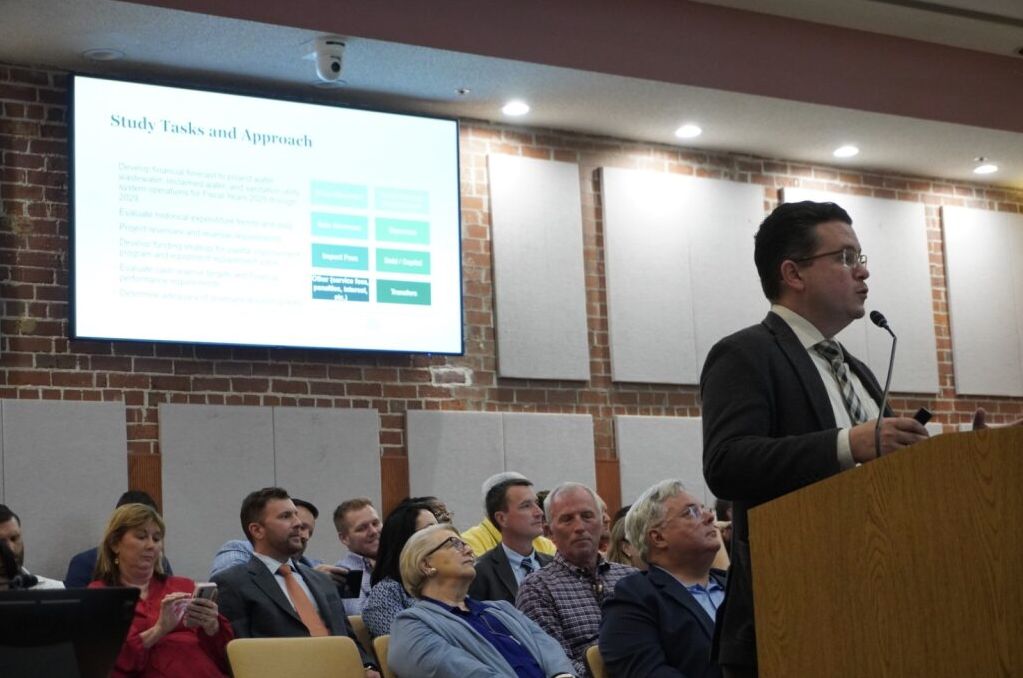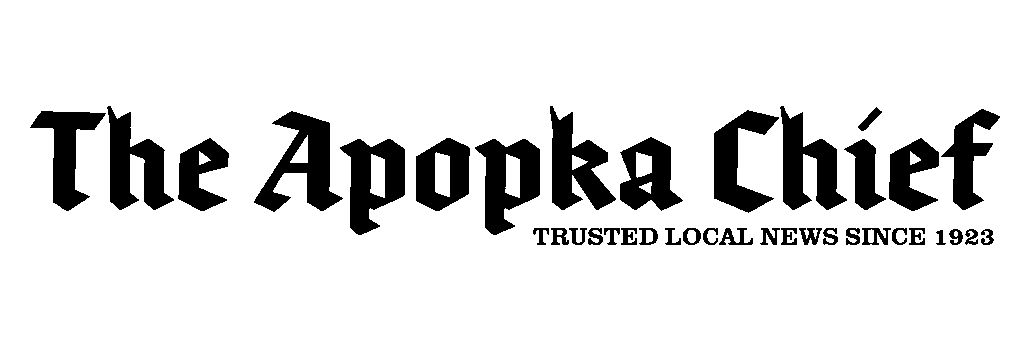
Vincent Cammarano
Key Points
From affordability of their utilities to the fast pace of new development, residents criticized the Apopka City Council on Wednesday for considering raising the utility rates by 15.5% for water, wastewater and reclaim services for fiscal year (FY) 2026.
The City Council voted unanimously to table adoption of the resolution, with the intent of revising the proposed rates at the next City Council meeting, which is scheduled for Sept. 17.
At the Wednesday meeting, Shawn Ocasio, senior manager from Raftelis Financial Consultants, presented his firm’s study recommending a 15.5% rate increase for 2026 and 2027, followed by 3.5% annual increases through 2029. The study projected a $180.8 million capital plan from 2025 to 2029, with $101.5 million in borrowed funds.
“We are trying to manage the impact to the customer as best we can while still trying to balance out the fact that the system has rather significant needs in terms of its operations and its capital,” Ocasio said. “As a part of that, we’re trying to achieve and maintain positive cash flows for the system as a whole, and then also maintain and achieve adequate cash target reserves.”
Ocasio and Henry Thomas, Raftelis senior vice president, presented the utility rate and impact fee study at two meetings this summer.
The current system serves 29,000 water accounts, 24,000 wastewater accounts, and 11,000 reclaimed water accounts, with combined revenues expected to rise from $33.7 million in 2025 to $36.6 million by 2029, according to Ocasio.
Ocasio pointed out that many local communities are raising rates to keep up with their costs.
Public comments highlighted concerns about the proposed rate increases. Various concerns ranged from the increases’ financial impact for fixed-income residents to a desire for more equitable cost-sharing with developers, and calls for improved planning, transparency, and resident engagement.
During public comment, resident Karin Settle said she took “a very lengthy” lunch break from her job to attend the Sept. 3 meeting. For the last few years, she has worked for a company in Apopka and received a 2-3% annual raise.
“I’ve gotten about a 2 to 3% raise, which in no way, shape or form, takes care of 15% raises just on my water bill,” she said. “I’ve already spent $18,000 for a roof so I could get the homeowners insurance down. Every single thing is going up except for our fixed incomes.”
The Raftelis study also recommended large impact fee rate increases for police, fire and park and recreation: the police impact fee from $747 to $1,262, the fire fee from $708 to $1,511, and recreation fee from $1,060 to $1,358.
Commissioner Nick Nesta recommended a 9% increase to avoid the proposed 15.5%. In September 2024, the City Council adopted a 23.75% increase for water, wastewater, and sewer rates for FY25.
“I think everyone understands that there needs to be an increase,” he said. “Nobody wants it. I think everyone understands it, but they don’t want to see a double-digit increase again.”
Blanche Sherman, city finance director, said that a 9% increase would equal a $64 million cut in the city’s capital improvement plan.
Radley Williams, interim city administrator, recommended many solutions to help lower the proposed water rate increase. Solutions include speeding up corrections to water meter issues and reducing the number of estimated meter reads by ordering more equipment and aiming for the national standard of 5–10% estimated reads.
Sanitation rate to increase
As a separate action item, the City Council voted 4-1 to increase the sanitation rate by 15% for FY26, effective Oct. 1, with Commissioner Nadia Anderson in opposition.
The proposed rate adjustments include a 15% increase for residential and a 25% increase for commercial, aiming for a 25% overall revenue increase.
“Based on a rate study by consultant Raftelis, a rate increase is needed to cover operating expenses due to increase in the population served, and the rising costs of labor, fuel, disposal and other operating expenses,” the City Council staff report said.
Ocasio presented the Raftelis sanitation rate increase study at the council meeting, showing the department’s low fund balance, high operating costs, and projected growth of 1.8% per year. Ocasio proposed a 6.5% sanitation rate increase per year through 2029.
The current revenues are $6.8 million, which are projected to reach $7.3 million by 2029. Operating expenses are $7.1 million in 2025 and will rise to $9.7 million by 2029. The tipping fee increase is projected at 12% annually.
Citizens recommended that the city finds alternative ways to cut costs and improve its budgeting practices to avoid the double-digit rate increases.
“The proper way to do [this] is go in, check your budgets, check how you’re spending money, figure out how you can cut costs to cover your expenses, as opposed to how you can get more money from us to cover your mismanagement,” resident Ian Kimbrell said.
Suggested Articles
No related articles found.



